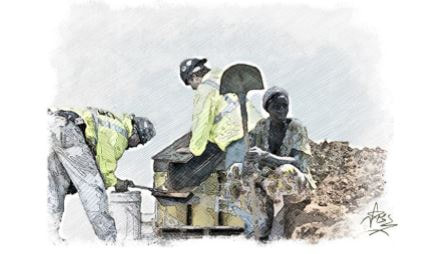|
More than 60 per cent of the world’s employed population, that is 2 billion women, men and youth, earn their livelihoods in the informal economy. The COVID-19 pandemic has put a spotlight on the vulnerability of workers in the informal economy. Informal workers, who often lack any form of social protection or employment-related benefits, are twice as likely to be poor compared to formal workers. Most people enter the informal economy not by choice, but due to lack of opportunities in the formal economy. Promoting the transition to formal employment is a necessary condition to reduce poverty and inequalities, advance decent work, increase productivity and sustainability of enterprises and expand government’s scope of action, notably in times of crisis.
Effective gender-responsive formalization strategies combine interventions to increase the ability of the formal economy to provide for decent work opportunities, to absorb workers and economic units currently in the informal economy, and to strengthen the ability of people and enterprises to enter the formal economy. The identification of the right incentives and the elimination of obstacles to formality are essential. Formalization results from a complex and gradual process. As part of this process, reliable and relevant statistics are needed to better understand the characteristics and drivers of the informal economy, and monitor progress towards formalization. Many countries are utilizing new technologies to facilitate the transition from informal to formal employment through E-formalization tools, such as electronic database systems for proper identification of employment and wider access to ICTs and e-commerce. Source:United Nations
0 Comments
Leave a Reply. |
